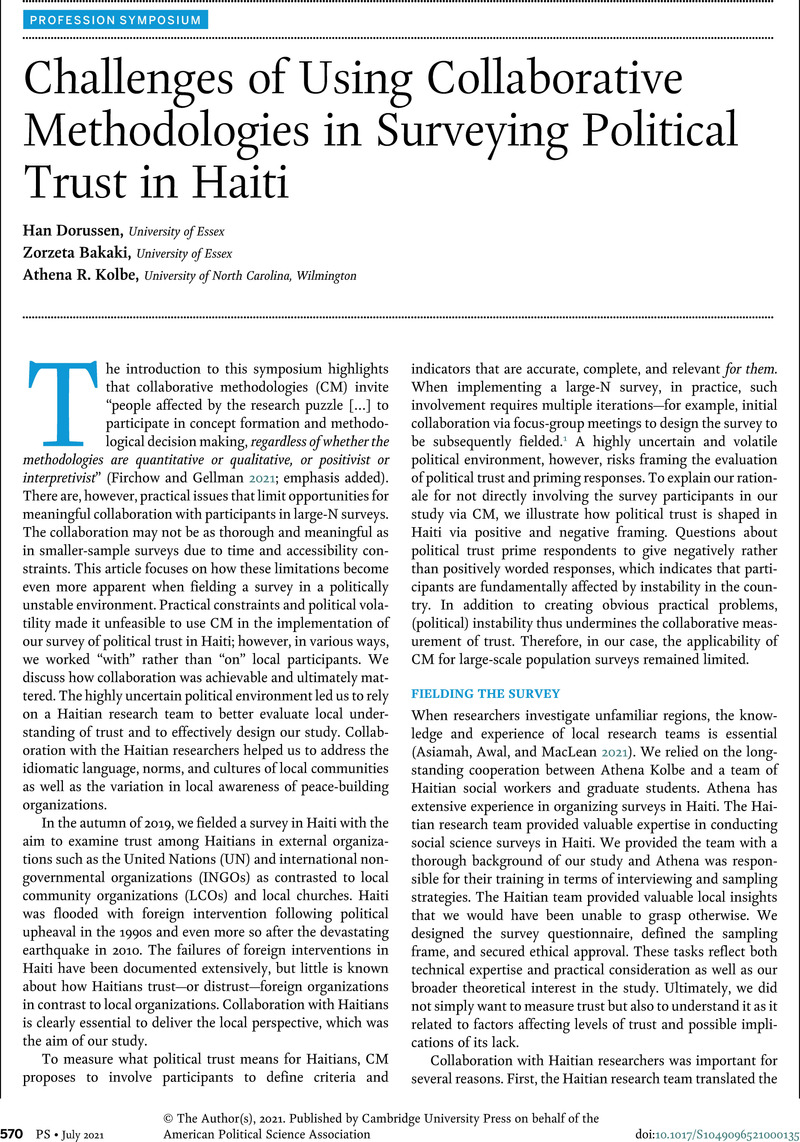Crossref Citations
This article has been cited by the following publications. This list is generated based on data provided by Crossref.
Flores, Thomas Edward
2021.
Everyday Democracy Indicators? How the Study of Democracy Illuminates the Value (and Challenges) of Collaborative Methodologies.
PS: Political Science & Politics,
Vol. 54,
Issue. 3,
p.
565.
Mitra, Ankushi
Kline, Curtis
and
Bautista-Chavez, Angie M.
2024.
Civically engaged research in political science: a methodological guide.
Politics, Groups, and Identities,
p.
1.





